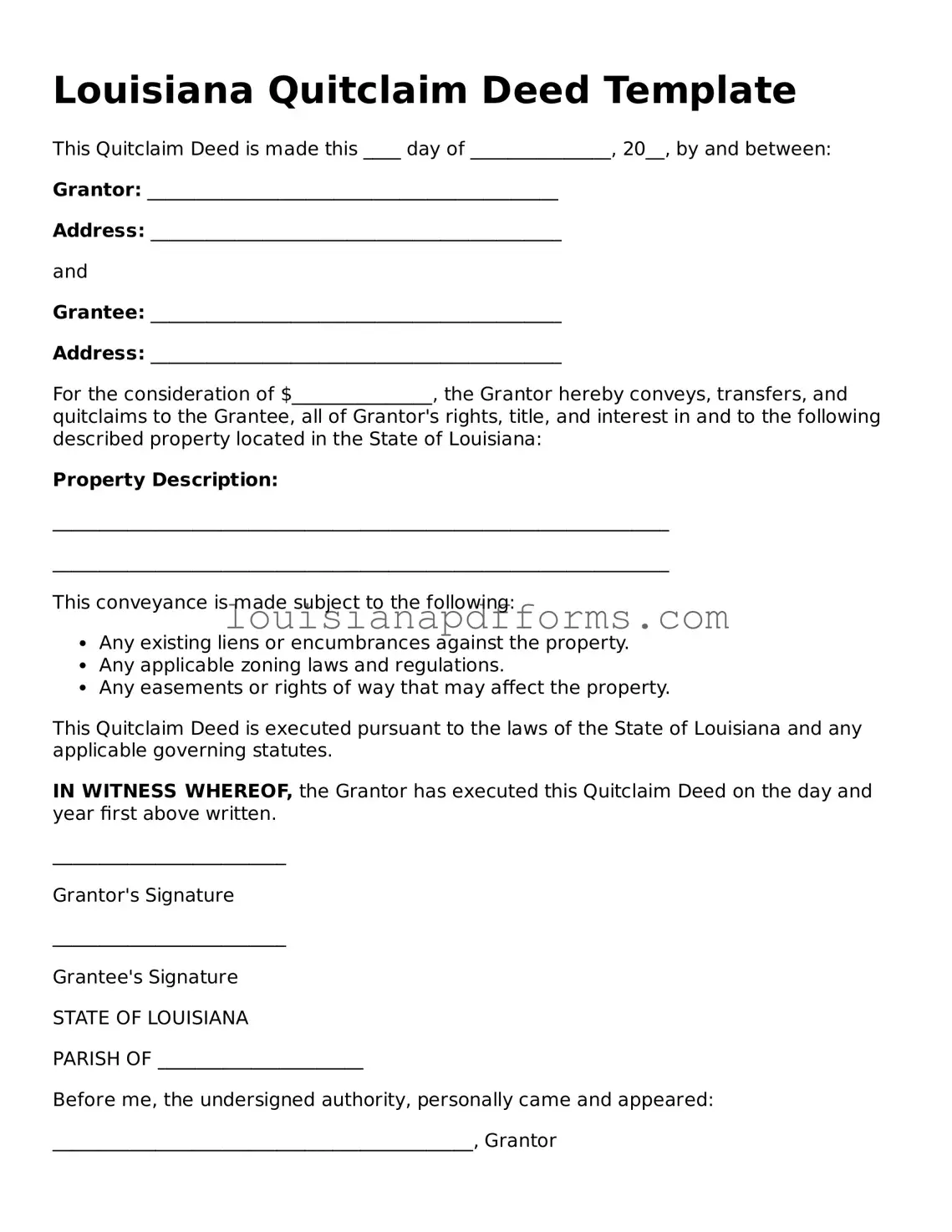Louisiana Quitclaim Deed Form
A Quitclaim Deed is a legal document used to transfer ownership of real estate from one party to another without guaranteeing that the title is free of claims. In Louisiana, this form serves as a simple way to convey property rights, often utilized in situations like family transfers or property settlements. Understanding how this deed works can help ensure a smooth transition of property ownership.
Access My Document Now

Louisiana Quitclaim Deed Form
Access My Document Now

Access My Document Now
or
Free Quitclaim Deed
You’re halfway through — finish the form
Edit, save, and download your completed Quitclaim Deed online.